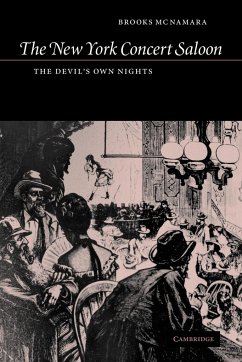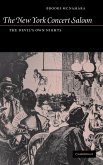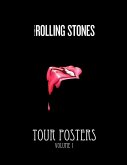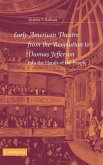In this book Brooks McNamara explores the world of the concert saloon in New York from the Civil War to the early years of the twentieth century. A concert saloon is defined as an establishment offering various kinds of entertainment, including alcohol, with some also providing gambling and prostitution. All of these saloons employed 'waiter girls' to sell drinks and sit with male customers and all had bad reputations. McNamara focuses on the theatrical aspects of the concert saloon and examines the sources of saloon shows, the changes in direction during the century, the performing spaces and equipment, as well as the employees and patrons. McNamara paints a picture of a lively and theatrically fascinating environment and his work sheds light on our understanding of American popular theatre. The book contain informative illustrations and will be of interest to historians of theatre, popular culture and American social history.
Hinweis: Dieser Artikel kann nur an eine deutsche Lieferadresse ausgeliefert werden.
Hinweis: Dieser Artikel kann nur an eine deutsche Lieferadresse ausgeliefert werden.








